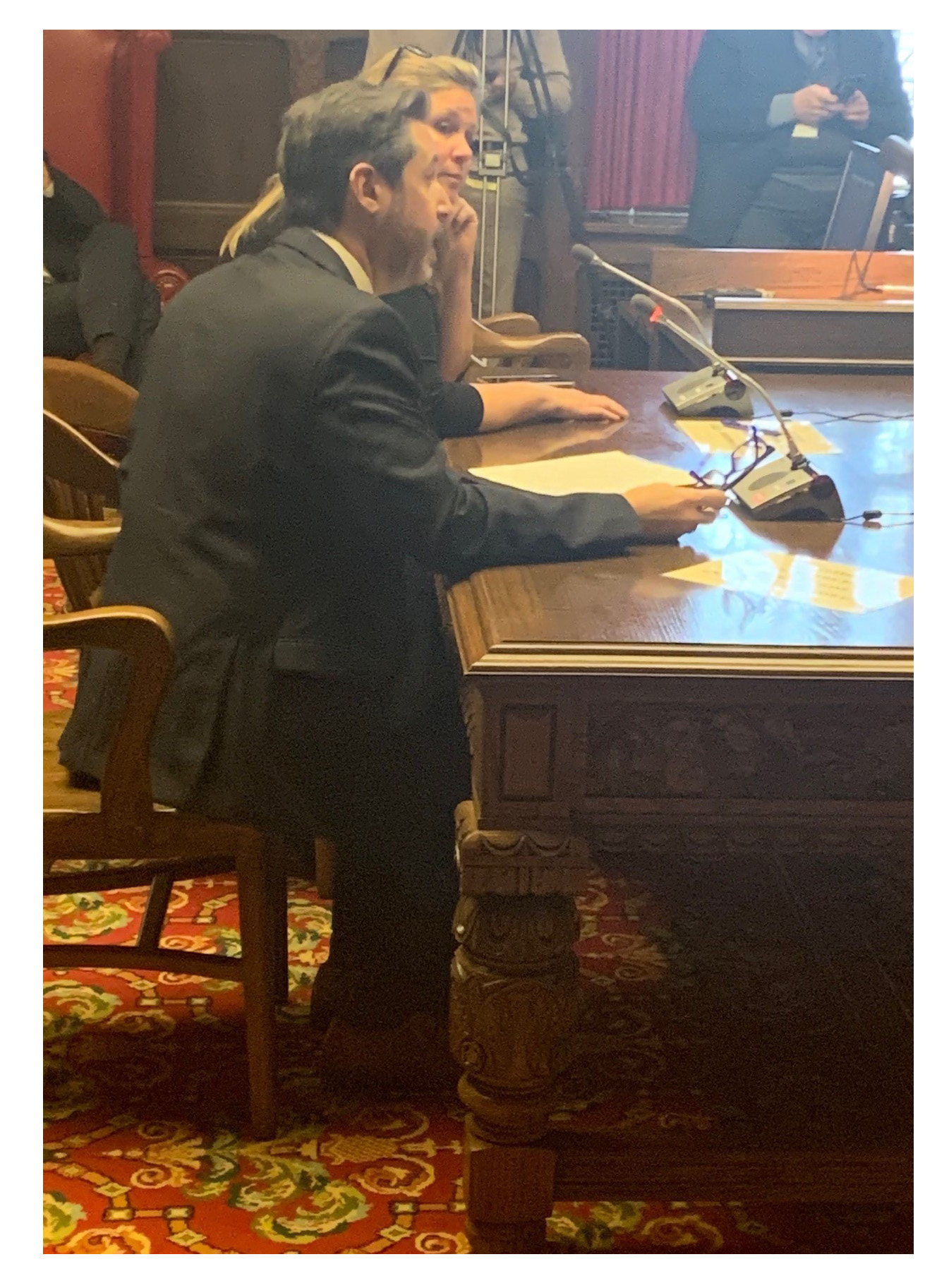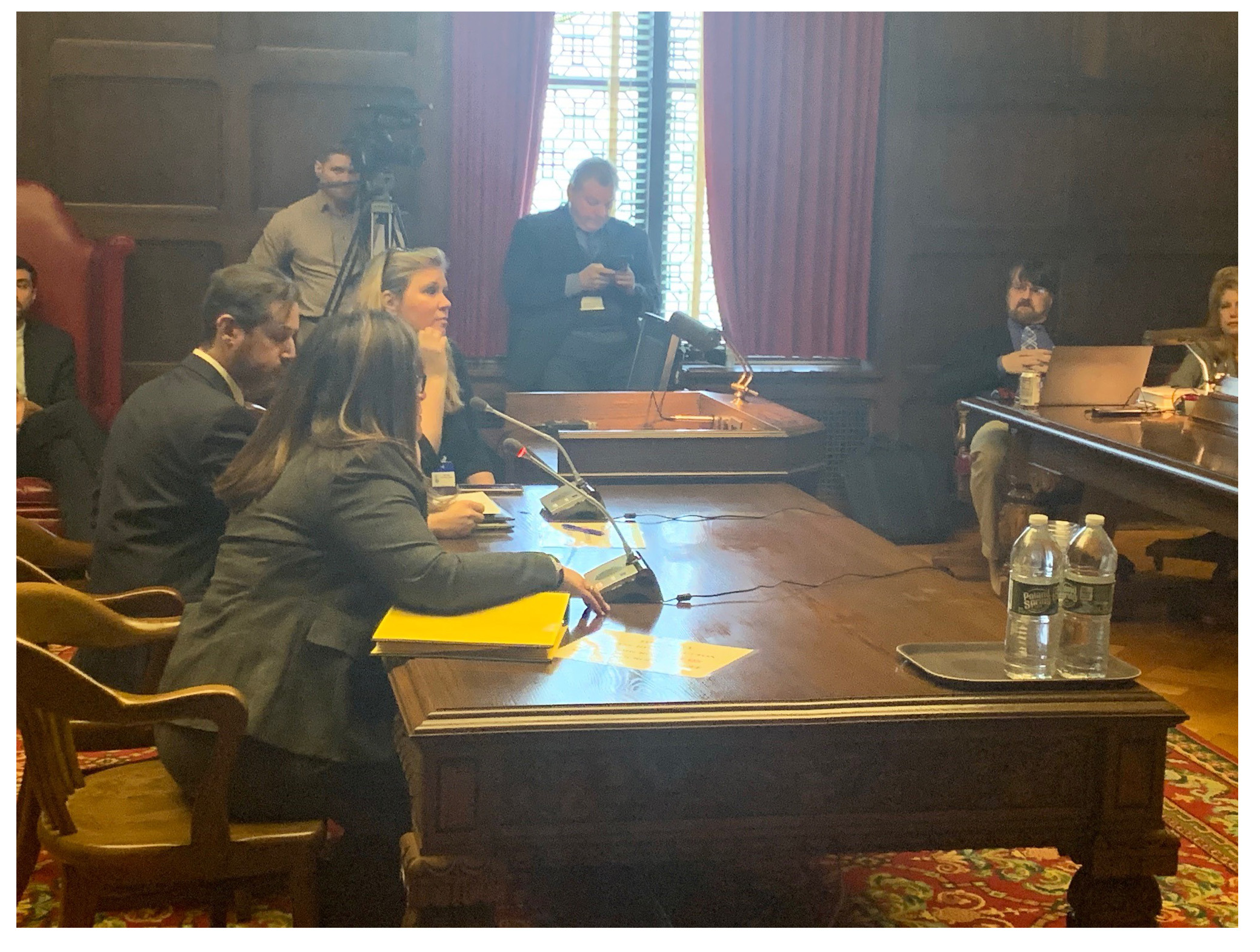The lame duck season has begun in Trenton and legislators are taking testimony on a wide range of bills as the two-year session heads toward its conclusion. The New Jersey State Bar Association was there on Monday to offer insights on several measures.
The New Jersey State Bar Association Supports S2133, which mandates health benefits coverage for fertility preservation services
The NJSBA supports S2133 (Cruz-Perez)/A3150 (Lampitt), which mandates health coverage for fertility preservation services when a medically necessary treatment directly or indirectly cause iatrogenic infertility. This bill would offer coverage to anyone who becomes infertile as a result of an illness or health condition, which makes treatment within reach for people who otherwise would not be able to afford it. Iatrogenic infertility results from treatment for cancer, lupus, sickle cell, autoimmune diseases and hormone treatment or surgery to physically affirm gender identity. As fertility preservation is often a concern for oncologists and other medical professionals treating patients in these circumstances, all patients should be made aware of the option to retrieve and preserve gametes prior to treatment or surgery.
The NJSBA believes that this legislation is balanced to protect all individuals who suffer from iatrogenic infertility. For these reasons, the NJSBA supports S2133/A3150.
Deb Guston, a past chair of the NJSBA's LGBT Rights Section, testified in support of this bill.
Seeking amendments to A4626, which allows certain prior statements by children to be admitted into evidence in child abuse and termination of parental rights cases.
 NJSBA Trustee Jeffrey Fiorello testified Monday that the NJSBA had concerns about A4626 and was seeking amendments to address them.
NJSBA Trustee Jeffrey Fiorello testified Monday that the NJSBA had concerns about A4626 and was seeking amendments to address them.
Hearsay statements in Title 9 proceedings come in as DCPP business records without corroboration at all phases of Title 9 proceedings except at trial where competent evidence is required.
Hearsay is typically not competent evidence even with corroboration. The NJSBA doesn’t take issue with corroborated hearsay statements coming before the court at other phases of the Title 30 termination of parental rights (TPR) case. There are multiple court appearances during a TPR case and a reasonable approach might be to permit the hearsay statements of children subject to corroboration at all phases of the TPR case except at trial.
It is the belief of practitioners that it is highly unlikely that a TPR case will turn solely on a child’s hearsay statement. But in the event that does happen, because the magnitude of the loss of rights, there should be some opportunity for a parent to confront the child in some manner at trial. To be clear, the NJSBA is not encouraging a child to testify before a parent. A child is only required to testify if there is no other corroboration for the statement. There are ways that currently exist to address this issue. In those cases, a child could testify in a separate room with attorneys submitting questions to a judge; removing the parent and only permitting the attorneys and judge to be present; or, literally putting a screen in front of the child during testimony. If an expert testifies and supports a conclusion that leads to termination, there is less likely a need for a child to testify and the expert testimony would support the other prongs necessary for termination of parental rights cases.
The state has every advantage at every phase of DCPP litigation. NJSA 9:6-8.46 literally creates special evidence rules favoring the state in DCPP cases. The amendment being recommended by NJSBA goes a long way to ensuring that a parent’s due process rights are addressed at the appropriate time. It also increases the likelihood of a sound conclusion to a case. These cases tend to get appealed, which leaves a child in limbo when the goal for a child who is in a TPR process is permanency. If the underlying case is sound, it reduces the likelihood of remands to address issues such as the admission of hearsay.
 Seeking amendments on A5890, which clarifies procedures concerning collection of child support on behalf of child over age 19 when court has ordered such support
Seeking amendments on A5890, which clarifies procedures concerning collection of child support on behalf of child over age 19 when court has ordered such support
The NJSBA's Family Law Section Chair Sheryl Seiden and Fiorello joined together to testify in support of the narrow aim of this bill to correct a contradiction in the law that would cut off child support to children with severe mental or physical incapacity that causes the child to be financially dependent on a parent. However, this statute has been misinterpreted to be an automatic emancipation statute when it was only limited to child support collection. With that, the NJSBA sought to remove the language regarding health insurance coverage in Section 1(a) of the bill and to add language clarifying that termination of child support under this Act does not operate as an emancipation of the child.